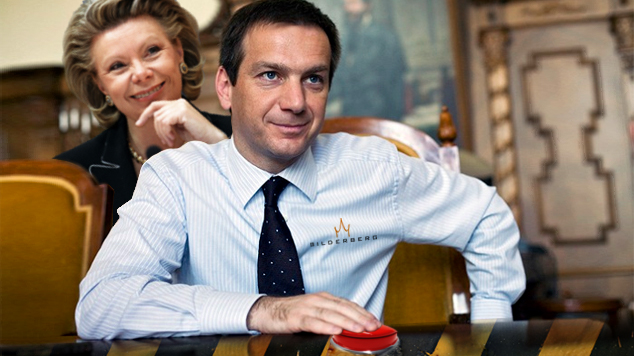The https://english.atlatszo.hu use cookies to track and profile customers such as action tags and pixel tracking on our website to assist our marketing. On our website we use technical, analytical, marketing and preference cookies. These are necessary for our site to work properly and to give us inforamation about how our site is used. See Cookies Policy
Gordon Bajnai remains silent about Bilderberg meeting
Gordon Bajnai, former Prime Minister of Hungary and party leader of Together 2014, was invited to the annual meeting of the Bilderberg group held in Copenhagen, Denmark, in May/June 2014.
As participants of these meetings are bound to secrecy, we did not ask him to reveal the content of this meeting (although we would welcome any related information). Rather, we wanted to know more about the technical details of the event:

How are people invited – via mail, email, direct talk, a messenger, or some other way? When was Bajnai invited and who exactly invited him? Maybe the steering committee of the Bilderberg group or the previous participants? Or maybe people get invited based on their previous and/or recent position(s)? Who covers the expenses? Is there some kind of contract between the hosts and the invited parties?
The Bilderberg meetings are subject to a barrage of criticism because of their lack of transparency. Although powerful people take part (this year Christine Lagarde, Viviane Reding, Mario Monti, Anders Fogh Rasmussen, Henry Kissinger, amongst others), nothing is public about these meetings apart from a vague list of general topics and the names of the participants. Is keeping secrecy assured by a privacy policy or is this a gentlemen’s agreement? How was the meeting secured? Are there conference materials distributed?
Bajnai kept silent about these issues and we, as journalists promoting transparency, are understandably unhappy about it. But from his perspective, was he right to keep silent?
There are a number of power brokers participating in the Bilderberg events, but participation does not mean that someone is powerful; Bajnai will not have more funds and his party will not become more popular because of this meeting – quite the contrary given the secrecy and suspicion surrounding the Bilderberg group. So, was it worth his while going?
We think no, as not only was he unlikely to gain anything, but he could even lose some of his potential supporters since his participation would easily be considered as reaching abroad for support instead of finding it within Hungary. Bajnai could have benefitted from this invitation in two ways: first, he rejects the invitation because of the lack of transparency of the meetings; or he accepts the invitation, but ignores the code of secrecy by reporting the happenings of the meeting to the popular media.
Conspiracy theories, including world domination are regularly associated with the Bilderberg group – exposing the truth (that these meetings are usually quite boring and lack constructive arguments, as former participant, Lajos Bokros, ex-Minister of Finances said in an interview) could help to ease suspicion. But these conspiracy theories, combined with the secrecy, are the main contributors to the mystical feel of these meetings, and the interest from the public.
Speaking of Bilderberg, in the Soviet era the Council for Mutual Economic Assistance (Comecon) had their own secret group called “Moment”, where countries from the Eastern bloc discussed issues regarding China. These meetings were held in complete secrecy and in isolation from the public. All Moment meetings concluded that trading and conducting foreign affairs with the Chinese “would just support the survival of Mao’s regime” – as Gyula Horn, former Prime Minister of Hungary wrote in his book. He also noted that while the main conclusion was to reject all contact with China, most countries were in fact actively trading with China – and probably this is a fair assessment of just how serious the Bilderberg group is today.
Read this article in Hungarian here. Translated by atlatszo.hu volunteer Péter Gyarmati.
Share:
Your support matters. Your donation helps us to uncover the truth.
- PayPal
- Bank transfer
- Patreon
- Benevity
Support our work with a PayPal donation to the Átlátszónet Foundation! Thank you.
Support our work by bank transfer to the account of the Átlátszónet Foundation. Please add in the comments: “Donation”
Beneficiary: Átlátszónet Alapítvány, bank name and address: Raiffeisen Bank, H-1054 Budapest, Akadémia utca 6.
EUR: IBAN HU36 1201 1265 0142 5189 0040 0002
USD: IBAN HU36 1201 1265 0142 5189 0050 0009
HUF: IBAN HU78 1201 1265 0142 5189 0030 0005
SWIFT: UBRTHUHB
Be a follower on Patreon
Support us on Benevity!

